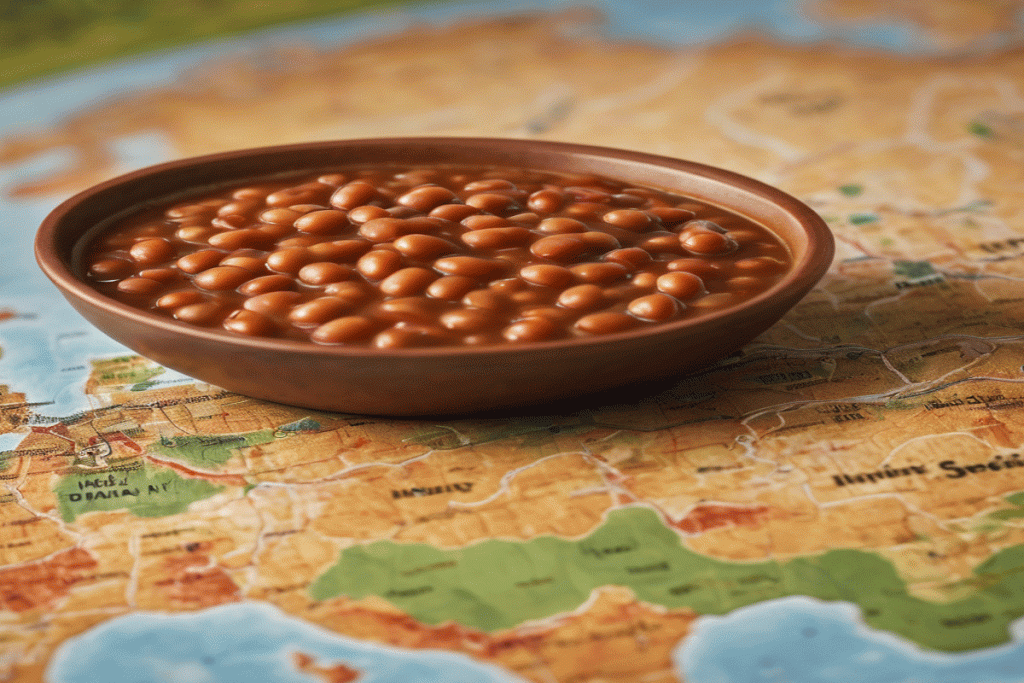Opportunities to set up a beans canning factory
Opportunities to set up a beans canning factory Seamerco research team wrote this
Seamerco research team wrote this article

In the fascinating world of canned bean trade certain nations reign supreme as leading exporters of versatile and nutritious pantry staple. Discovering the secrets behind their success can unveil wealth of insights into the global food economy & consumer preferences.
Canned beans have become an essential commodity in the global food market. Their rise in popularity can be attributed to several factors. Firstly, canned beans have long shelf life and making convenient option for consumers. Unlike fresh beans which require careful storage and maintenance canned beans can be stored for extended periods without losing their quality or nutritional value. This convenience factor has contributed the growing demand for canned beans in domestic & international markets.
Secondly, canned beans offer range of nutritional benefits. They are an excellent source of protein, fiber, and essential vitamins and minerals. With increasing emphasis on healthy eating and plant-based diets canned beans have become staple in many households. They provide nutritious alternative to meat and often incorporated into various recipes such as salads, soups, and stews. The nutritional value of canned beans coupled with their ease of use and has fueled popularity in the global food market.
Several nations have emerged as leaders in the canned bean industry by dominating the export market with their high-quality products. These nations have strategically positioned themselves to meet growing demand for canned beans within their domestic markets & abroad.
These leading exporting nations have established themselves as powerhouses in the canned bean trade, leveraging their agricultural expertise and efficient production processes to meet the global demand for pantry staple.
The success of exporting nations in the canned bean industry can be attributed to several key factors. These factors play crucial role in determining nation’s ability to meet demands of domestic & international markets.
To gain a deeper understanding of success of exporting nations in the canned bean industry let’s take a closer look at the case of the United States where one of the leading exporting nations.
The United States boasts a substantial agricultural sector with vast farms spread across its fertile plains. These farms produce wide variety of bean crops including kidney beans, black beans, and pinto beans. The cultivation of these beans is supported by advanced farming techniques, such as precision agriculture and mechanization. These techniques ensure optimal yields allow for efficient harvesting & processing.
The United States’ success in the canned bean trade can also be attributed to its robust infrastructure and logistics network. The country has well-developed transportation systems, enabling the efficient movement of beans from farms to processing plants and ultimately to export destinations. This seamless supply chain minimizes delays and ensures cans of beans reach consumers in timely manner.
Additionally, the United States has implemented stringent quality control measures to maintain the highest standards in its canned bean exports. The country’s regulatory agencies monitor the entire production process from farm to can ensuring that only top-quality beans are selected and processed. This commitment to quality has earned the trust of consumers worldwide, making the United States a preferred source for canned beans.
The case of the United States showcases the importance of holistic approach to the canned bean trade. By combining agricultural expertise, advanced farming techniques, robust infrastructure, and strict quality control measures, exporting nations can establish themselves as leaders in the industry.
While exporting nations enjoy a dominant position in the canned bean trade, they also face several challenges that can impact their success.
Despite these challenges, exporting nations continue to adapt and innovate, ensuring the steady supply of canned beans to meet the growing global demand.
The canned bean industry is not immune to influence of emerging trends and changing consumer preferences. Exporting nations must stay attuned to trends maintain their relevance and capture new market opportunities.
By embracing these trends exporting nations can stay ahead of curve and capitalize on evolving preferences of consumers in the canned bean trade.
Technology plays a pivotal role in the canned bean industry, enabling exporting nations to streamline production processes, enhance quality control, and improve efficiency.
The future of the canned bean industry is promising with numerous opportunities for exporting nations to expand their market share and cater to evolving consumer demands.
The future prospects for exporting nations with ample opportunities to expand their reach, embrace sustainability, and meet the evolving needs of consumers are bright in the canned bean industry.
The world of canned bean trade is fascinating realm where nations compete to provide top quality products to consumers worldwide. Leading exporting nations such as the United States, China, and Brazil, have established themselves as powerhouses in the industry capitalizing on their agricultural resources, advanced farming techniques, and stringent quality control measures.
Despite the challenges faced by exporting nations such as competition, fluctuating commodity prices, and trade barriers, they continue to innovate and adapt to meet the demands of the canned bean market. Emerging trends including organic production, product diversification, convenience-focused packaging, and digital marketing, offer exporting nations new avenues for growth and market expansion.
Technology plays crucial role in the canned bean industry, enabling exporting nations to optimize production processes, enhance quality control, and embrace sustainability. Precision agriculture, automated processing, data analytics, and packaging innovations are just few examples of how technology is revolutionizing the industry.
Opportunities to set up a beans canning factory Seamerco research team wrote this
Countries that export canned beans Seamerco research team wrote this article Introduction: In
Automatic Canned Beans Production Line Seamerco research team wrote this article Introduction: Imagine